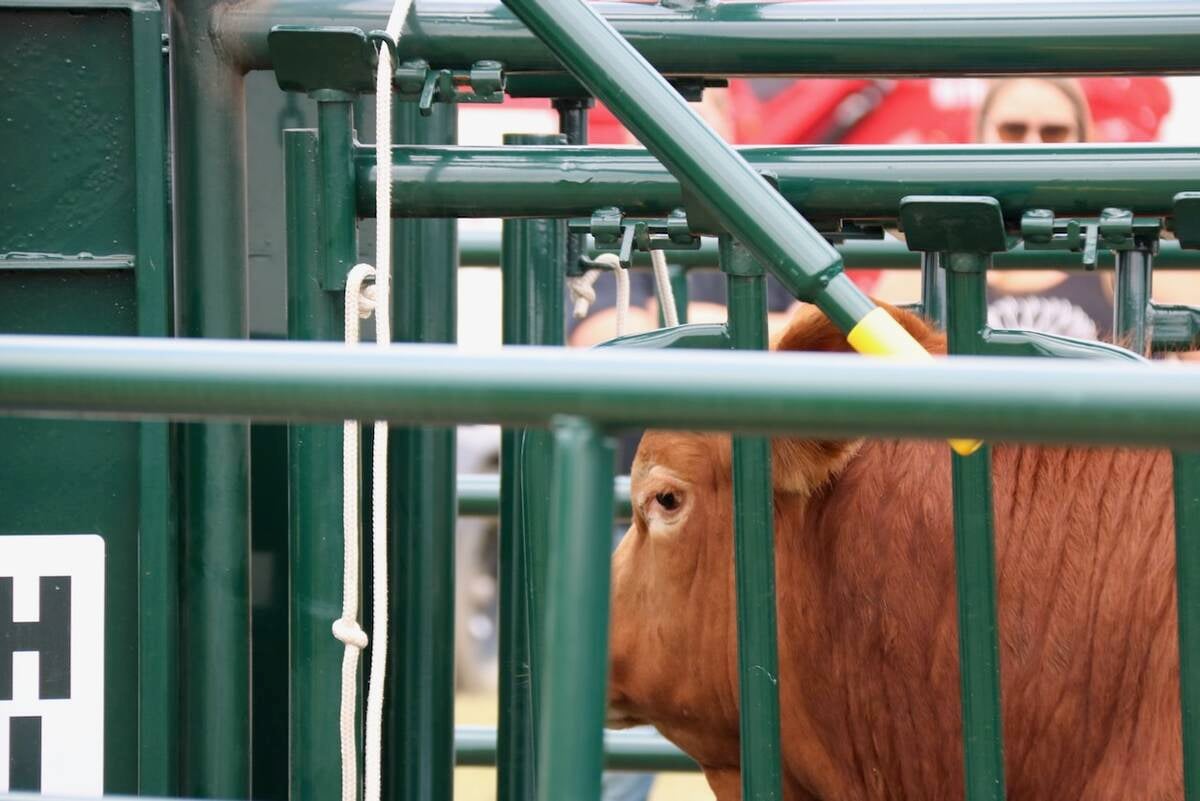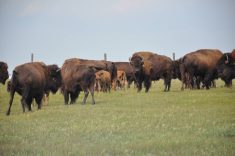BARONS, Alta. – Angry Canadian beef producers have initiated a precedent setting trade challenge against the United States government under the North American Free Trade Agreement.
A group of five feedlot operators is seeking $150 million in damages under Chapter 11 of NAFTA. The group called the Canadian Cattlemen for Free Trade is also demanding a reopening of the U.S. border to Canadian beef and cattle products. The border has been closed to live Canadian cattle and bone-in beef products since BSE was found in a Canadian cow in May 2003.
Read Also

Good handling equipment a must on cattle operations
It’s important for the safety of producers and everyone else dealing with their stock that handling equipment is functional and safe.
International trade lawyer Todd Weiler said it marks the first time a class action claim has been launched under Chapter 11.
“We are talking about a North American industry that has been harmed by the actions of one government,” said Weiler, who is representing the cattle producers.
“Chapter 11 is a brand new area. We have a cutting edge case,” said Michael Woods, who has also been retained by the group.
“The whole NAFTA is on trial here,” he said Aug. 12 at a feedlot owned by Cor Van Raay, one of the feedlot owners who inititiated the action.
Under a clause of Chapter 11, someone who invested in another country covered by the NAFTA agreement and who has incurred losses due to a trade action by that country, may seek damages. Any damages awarded go to the individual businesses that launched the challenge.
Canadian cattle producers argue they relied on NAFTA to build an industry and had expectations the agreement would work for them. Closed borders are a form of discrimination and they lost their right to trade fairly.
The group has informed the Alberta and federal governments about its intentions, said Rick Paskal, part of the group of five litigants.
“Any livestock entity that has been damaged by the United States’ action are able to potentially be a litigant and get damages,” he said.
The group has about half its funding in place to pay legal costs expected to be about $3 million. So far, 84 litigants across Canada have joined the group with plans to file more motions.
“This is being funded by the producers by themselves. This is a very costly endeavour to do this and every producer is paying his share,” said Paskal.
Those involved can expect to pay heavily, said Peter Clark, an Ottawa trade consultant.
He foresees governments moving quickly to close loopholes in Chapter 11 to prevent future litigation.
“This would set a precedent that would broaden the scope of Chapter 11 until governments realized how broad it was and took action to narrow it,” he said.
Two articles in the agreement address this type of lawsuit.
Article 1110 states the litigant must have an investment in the territory.
Article 1102 deals with how a foreigner or the foreigner’s products are treated compared to domestic products. It does not explicitly say there has to be an investment.
If the case advances past an international tribunal, which must agree the Canadians have a case, the feedlot operators and American government each appoint one arbitrator and those two then select a third person to be a member of the panel.
The American government will appoint an experienced arbitrator and drag the case out as long as possible, said Clark.
The Canadian government is not involved.
“The government could have brought a challenge for them under Chapter 20 of the NAFTA, but that hasn’t happened because nobody asked for it,” Clark said.
There has been some reluctance to initiate legal action because of a concern the Americans would further delay the process to ease border restrictions.
“My view is that the Americans get away with murder in terms of agriculture policy and we should be challenging them,” Clark said.















